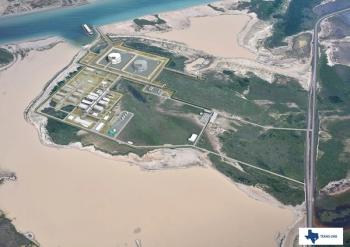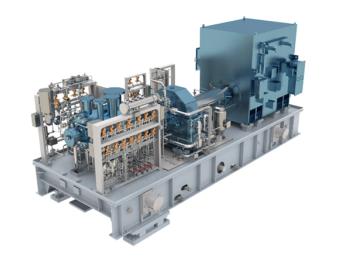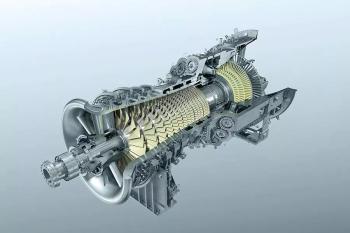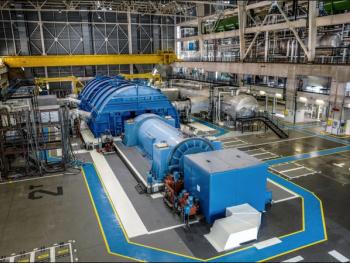
GE Aerospace Validates High-Pressure Turbine Blade, Nozzle with Endurance Testing
The tests demonstrated improved durability and fuel efficiency during high-thrust flight; next, GE Aerospace will conduct dust-ingestion testing on the turbine’s airfoils.
GE Aerospace concluded durability testing on its next-generation high-pressure turbine (HPT) airfoil technologies, specifically the blades and nozzle, executing over 3,000 endurance-test cycles under an initiative to develop a new compact aviation engine core. HPT testing revealed better durability and fuel efficiency than traditional aero turbine technology, which aligns with key requirements in the aviation industry.
In addition, the endurance testing replicated high-thrust takeoff and ascension to evaluate component durability during high-stress flight conditions. Next, GE Aerospace will perform dust-ingestion testing to assess the performance and behavior of hot-section blades in harsh conditions. Previously, the company tested its HPT hardware for thermal, mechanical, and overall system performance.
“With endurance tests conducted on new HPT blade-cooling technologies, it shows the CFM Revolutionary Innovation for Sustainable Engines (RISE) program’s early focus on durability and reliability,” said Arjan Hegeman, Vice President, Future of Flight Engineering, GE Aerospace. “This is the earliest in new technology development that we’ve done durability tests, incorporating the experience of our commercial aircraft engines flying today.”
CFM RISE Program
GE Aerospace’s endeavor to develop a next-generation compact engine, comprising a high-pressure compressor, HPT, and combustor technologies, falls under the CFM RISE program. Besides the compact engine core, the program hosts the
Launched in 2021, CFM RISE is a technology demonstration program owned and operated by GE Aerospace and Safran Aircraft Engines, with a registered trademark from CFM International. Currently, the program completed more than 250 tests, and the compact engine core will be demonstrated later this decade.
Catalyst Turboprop
In early March 2025, the United States’ Federal Aviation Administration (FAA), during the Federal Aviation Regulation (FAR) Part 33 certification process, certified GE Aerospace’s
The Catalyst turboprop engine is the first centerline, clean-sheet advanced turboprop to be certified under the latest FAA standards, which include more than 20 new requirements. The engine features a 16:1 overall pressure ratio, allowing up to 18% improved fuel consumption and up to 10% higher cruise power. The next-generation engine features two stages of variable-stator vanes, cooled high-pressure turbine blades, and additively manufactured components.
European Manufacturing
In late March 2025, GE Aerospace and Lufthansa Technik inaugurated the
The facility primarily overhauls and repairs CFM International’s LEAP engines for narrowbody aircraft, such as the Airbus A320neo and Boeing 737 MAX. XEOS is currently conducting LEAP-1B shop visits and LEAP-1A module work and engine testing, with plans to increase overhaul capacity and repair capability in the coming months. The joint venture will also add LEAP-1B test cell capability soon.
Newsletter
Power your knowledge with the latest in turbine technology, engineering advances, and energy solutions—subscribe to Turbomachinery International today.




